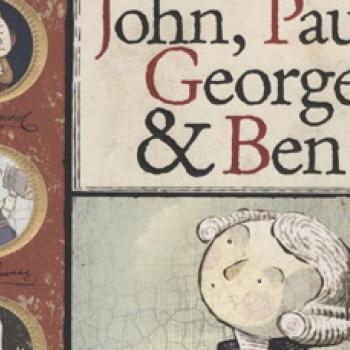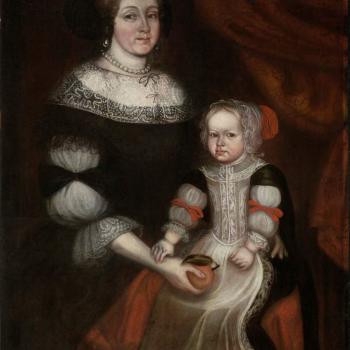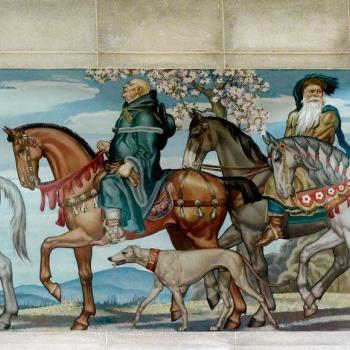Students first analyze Walt Whitman's "I Hear America Singing," then use Whitman's poem as a model as they create their own list poems.

Walt Whitman as a Model Poet: "I Hear My School Singing"

Grades
|
The ABCs of Poetry
9 - 12
Lesson Plan
| Minilesson
Students examine a letter of the alphabet from all angles, creating image pools of original metaphors that they then turn into poems.

Grades
|
The Feature Story—Fifteen Minutes (and 500 Words) of Fame!
9 - 12
Lesson Plan
| Standard Lesson
Students learn how to differentiate between a news story and a feature story by writing a profile of a classmate.

Grades
|
Letters and Learning Genre
6 - 8
Lesson Plan
| Standard Lesson
Using their prior knowledge of books containing letters, students show their understanding of genre by rewriting a story and reflecting on how traditional stories differs from stories told in letters.

Grades
|
Book Report Alternative: Hooking a Reader with a Book Cover
6 - 8
Lesson Plan
| Standard Lesson
Students select a book to read based only on its cover art. After reading the book, they use an interactive tool to create a new cover for it.

Grades
|
Stairway to Heaven: Examining Metaphor in Popular Music
9 - 12
Lesson Plan
| Standard Lesson
Students explore figurative language by examining the lyrics of popular songs.

Grades
|
Comparing and Contrasting: Picturing an Organizational Pattern
6 - 8
Lesson Plan
| Standard Lesson
Using picture books as mentor texts, students learn effective strategies for organizing information that compares and contrasts. Students can then apply appropriate organizational strategies to their own papers.

Grades
|
Involving Students and Families in Ongoing Reflection and Assessment
K - 2
Lesson Plan
| Recurring Lesson
Students begin by writing a sentence or two each week and progress to daily reflections and records of their school activity. Families respond to these student reflections, which become the basis for discussion among family, teacher, and students.

Grades
|
Analyzing Famous Speeches as Arguments
9 - 12
Lesson Plan
| Standard Lesson
Students are often asked to perform speeches, but rarely do we require students to analyze speeches as carefully as we study works of literature. In this unit, students are required to identify the rhetorical strategies in a famous speech and the specific purpose for each chosen device. They will write an essay about its effectiveness and why it is still famous after all these years.

Grades
|
American Folklore: A Jigsaw Character Study
3 - 6
Lesson Plan
| Standard Lesson
Groups of students read and discuss American folklore stories, each group reading a different story. Using a jigsaw strategy, the groups compare character traits and main plot points of the stories. A diverse selection of American folk tales is used for this lesson, which is adaptable to any text set.

Grades
|
An Exploration of The Crucible through Seventeenth-Century Portraits
9 - 12
Lesson Plan
| Standard Lesson
In this lesson, students incorporate analyses of characters from The Crucible with examinations of original seventeenth-century portraits of Puritans to create a visual portrait of the character. The project culminates in a "Portrait Gallery Walk" where students present and defend their artwork.

Grades
|
Guided Reading Strategies with Henry and Mudge
1 - 3
Lesson Plan
| Standard Lesson
In this lesson, students read Henry and Mudge and the Starry Night as a whole group as the teacher models a questioning strategy. In subsequent sessions, students practice the questioning strategy and reread for fluency.

Grades
|
I Have a Dream: Exploring Nonviolence in Young Adult Texts
9 - 12
Lesson Plan
| Standard Lesson
Students will identify how Martin Luther King Jr.'s dream of nonviolent conflict-resolution is reinterpreted in modern texts. Homework is differentiated to prompt discussion on how nonviolence is portrayed through characterization and conflict. Students will be formally assessed on a thesis essay that addresses the Six Kingian Principles of Nonviolence.

Grades
|
Exploring The Prologue to The Canterbury Tales using Wikis
9 - 12
Lesson Plan
| Standard Lesson
Students study Chaucer's Canterbury Tales not just for its rich language, but also for the insights it provides into the Middle Ages. Using wikis, students collaborate to study both literature and history on their own terms. They create meaning and build information networks using tools Chaucer himself would have loved.

Grades
|
Utilizing Visual Images for Creating and Conveying Setting in Written Text
3 - 6
Lesson Plan
| Recurring Lesson
This lesson supports third-through-sixth grade students as they communicate story setting to their readers through the use of visual image prompts. Activities include individual and cooperative learning group work, as well as whole class discussion.

Grades
|
Creating Psychological Profiles of Characters in To Kill a Mockingbird
9 - 12
Lesson Plan
| Standard Lesson
Students explore the motivation behind characters' actions in To Kill A Mockingbird by creating psychological profiles for characters from the novel.

Grades
|
Prompting Revision through Modeling and Written Conversations
3 - 5
Lesson Plan
| Standard Lesson
Students create a checklist outlining what effective writers do, revise his or her own writing, and engage in a written conversation to help peers with the revision process.

Grades
|
Brave New Words: Novice Lexicography and the Oxford English Dictionary
9 - 12
Lesson Plan
| Standard Lesson
Students become novice lexicographers as they explore recent new entries to the dictionary, learn the process of writing entries for the Oxford English Dictionary, and write a new entry themselves.

Grades
|
Choose, Select, Opt, or Settle: Exploring Word Choice in Poetry
9 - 12
Lesson Plan
Students investigate the effects of word choice in Robert Frost's "Choose Something Like a Star" to construct a more sophisticated understanding of speaker, subject, and tone.

Grades
|
Texting a Response to Lord of the Flies
6 - 8
Lesson Plan
| Standard Lesson
Students use Lord of the Flies to explore communication styles and techniques by writing text messages from one of the novel's characters to an imagined audience off the island.